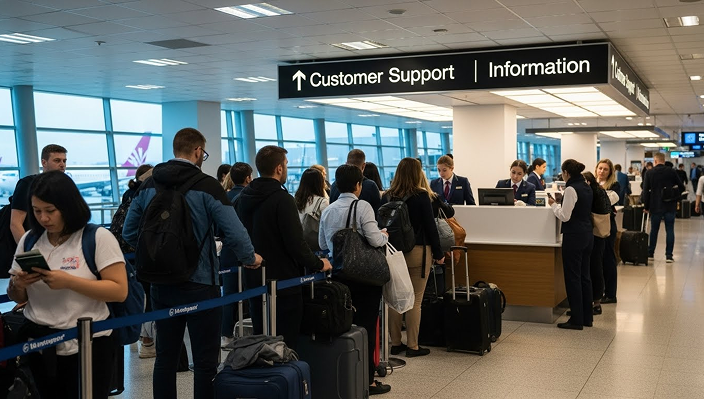For years, buying tickets to a live event has felt less like a straightforward purchase and more like navigating a maze of hidden costs. The advertised face value you see at first glance is rarely what you end up paying.
Service fees, venue charges, and an array of puzzling “junk fees” often pop up at the last minute, leaving you shell-shocked at checkout. In fact, according to the Council of Economic Advisers, these opaque pricing tactics cost consumers a staggering $7.14 billion in 2023.
Enter the Federal Trade Commission (FTC) with a bold new mandate: the Trade Regulation Rule on Unfair or Deceptive Fees. This directive is poised to shake up the ticketing world’s Wild West practices and enforce a new code of transparency and honesty.
Instead of a subtle push for clarity, the FTC is giving the industry a firm shove—one that will require concert venues, ticketing platforms, and music promoters to fundamentally change how they present ticket prices to consumers.
What the New FTC Rule Means
1. Total Price Must Be Disclosed Upfront
- What’s Required: The total ticket price, including the base amount plus all mandatory fees (service charges, venue fees, and any other required add-ons), must be presented before the buyer reaches the checkout stage. No more “bait-and-switch” surprises at the final screen.
- Example: A $50 face-value ticket with $15 in fees must be advertised as a $65 ticket right from the start.
- Why It Matters: This puts an end to drip pricing—where each additional fee only comes to light late in the purchase process—and ensures consumers know exactly what they’ll pay before they click “buy.”
- What to Do: Update your ticketing and sales systems to reflect the full, all-in cost from the get-go.
2. No More Misleading Fee Descriptions
- What’s Required: Vague, catch-all terms like “service fee” or “convenience charge” must be scrapped or clearly defined. Each fee must be directly tied to a specific service or expense. For instance, “facility charges” should correspond to real operational costs of the venue.
- Example: If a venue fee is listed, it should detail what it covers—perhaps the cost of maintaining the sound system or ensuring clean restrooms.
- Why It Matters: By eliminating vague and misleading labels, consumers gain a true understanding of what they’re paying for, building trust and confidence in the ticket-buying experience.
- What to Do: Review your fee structure, justify each charge, and present it in plain language that a buyer can easily understand.
Lessons from the Airline Industry
If this shift toward transparency feels familiar, it should. The U.S. Department of Transportation (DOT) enacted similar rules for airlines in 2012, requiring all-in pricing—base fares plus government taxes and mandatory fees—to be disclosed upfront. The goal was the same: let consumers know the real cost of their purchase before they commit.
Before that rule, travelers would select a flight at a seemingly great rate, only to be blindsided by incremental fees at the end. Now, airlines must show the full, final price early in the process, making it easier for customers to compare options, budget accurately, and avoid last-minute sticker shock. The FTC’s new directive aims to bring that same clarity and fairness to live event ticketing.
Why Compliance Is Crucial
- Avoid Penalties: Non-compliance can lead to steep civil fines under the FTC Act.
- Maintain Trust: Transparent pricing fosters customer confidence, reduces buyer frustration, and diminishes the risk of bad press or social media backlash.
- Stay Competitive: As transparency becomes the industry standard, laggards will stand out for the wrong reasons. Getting this right can enhance your brand and customer loyalty.
Action Steps for Ticket Sellers
- Review Your Pricing: Ensure that all fees are baked into the initial advertised price.
- Update Your Systems: Adjust your ticketing infrastructure so that the total price is displayed before the buyer moves to checkout.
- Clarify Fee Descriptions: Abandon ambiguous fee labels and explain each charge clearly and honestly.
A New Era of Transparent Ticketing
The FTC’s new rule heralds a new era in the ticketing industry, one that puts honesty and clarity at the forefront. Just as the DOT’s all-in pricing transformed how we shop for airline tickets, this move will reshape how we buy concert and event tickets—removing frustration, reducing confusion, and ultimately building a more equitable marketplace.
For concert venues, promoters, and ticketing platforms, it’s time to embrace these changes. By complying with the new FTC requirements, you’ll not only sidestep legal headaches but also earn the trust and appreciation of your customers. In the long run, that’s a win for everyone—buyers, sellers, and the live event industry as a whole.

.svg)
.svg)
.svg)













.png)








.png)
.png)


-min.png)
.png)
-min.png)
.png)
-min.png)
.png)
-min.png)
.png)


.jpg)
















.png)
.png)



